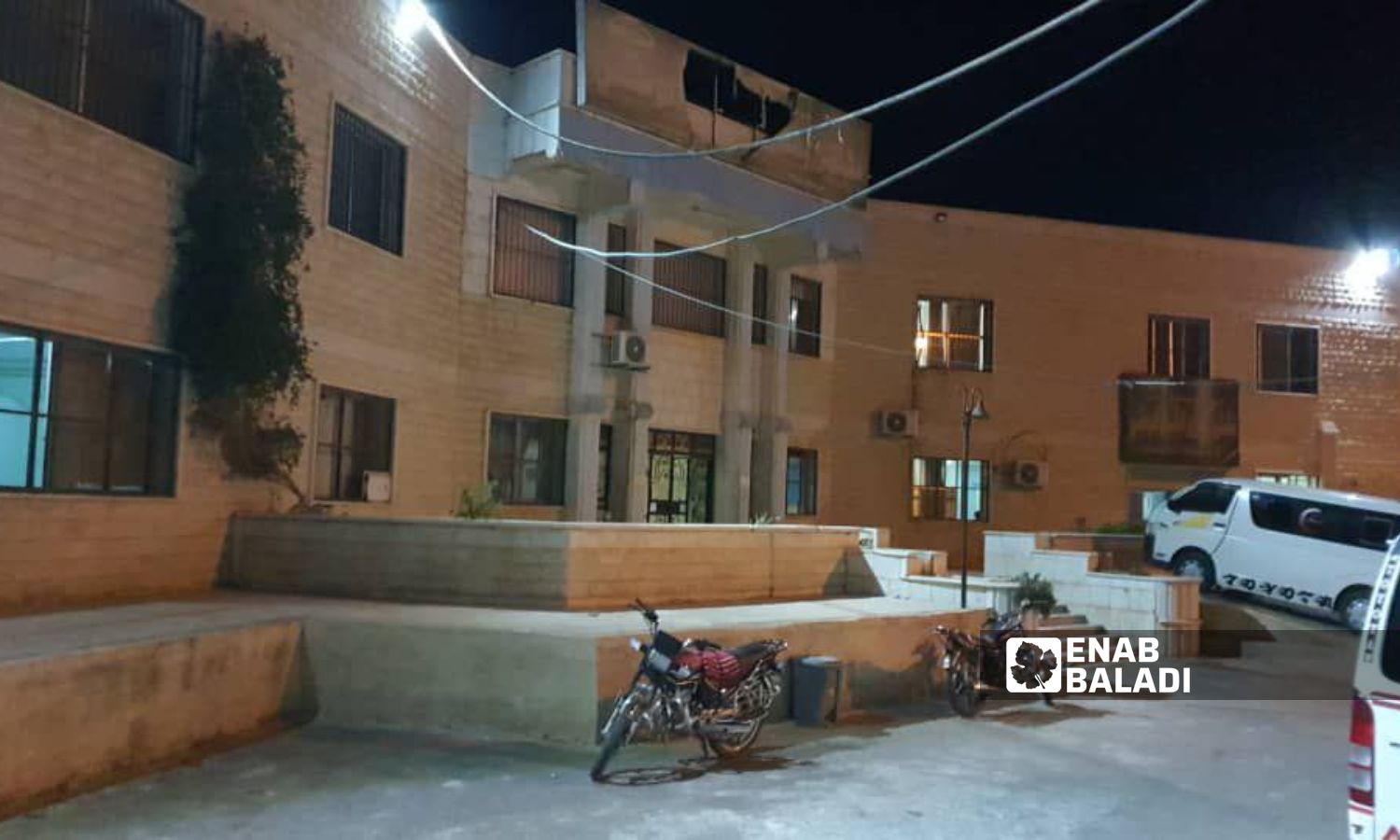



Daraa – Sarah al-Ahmad
Busra al-Sham’s National Hospital, east of Daraa governorate, suffers from a shortage of medicines and medical equipment, resulting in a decline in the medical and health services provided to the residents of the area.
The hospital is considered one of the most important hospitals in the province, as it serves more than 100,000 people from the residents of Busra al-Sham and the surrounding towns.
Dr. Asim al-Dos, one of the officials in the administration of Busra al-Sham Hospital, told Enab Baladi that the negligence of the Daraa Health Directorate in meeting the hospital’s needs for medical supplies is a major obstacle in providing services.
He added that every time the hospital administration demands its allocations, the Directorate ignores the requests.
The doctor pointed out that there is no response or justification from the Directorate for the extent of the shortcomings in the hospital, and recently, after repeated requests, the Directorate replied that it is unable to provide medical services.
The reason for not sending the necessary therapeutic drugs to the hospital was justified by their unavailability in quantities that allow for covering the needs of all national hospitals in the province.
The Directorate added that its priority is currently limited to meeting the needs of the Daraa National Hospital, according to the doctor.
Ali al-Mikdad, a doctor who was among the supervisors of the development plan submitted by Busra al-Sham Hospital to the Daraa Health Directorate, said to Enab Baladi that the plan included the hospital’s needs for maintenance and medical devices.
Among the requested devices were a CT scan machine, infant incubator “respirator,” modern anesthesia devices, a cardiac monitoring device, and other devices, in addition to a request for the renovation of the hospital building.
The doctor pointed out that the hospital’s doors and windows need repair, with some needing replacement, in addition to painting the walls, renovating the floors of some departments, and maintaining the sewage system.
The plan also included demands related to the hospital’s need for the renovation and maintenance of the alternative electric heating system, and the maintenance of the laboratory and surgery room.
The doctor said that this plan could have improved the quality of the services provided by the hospital to the people in Busra al-Sham and its surroundings.
For its part, the Health Directorate reviewed the development plan submitted by the doctor and responded with rejection without explanations, according to the doctor.
Rasheed, an employee in the pharmaceutical department of the Health Directorate in Daraa (withholding his full name due to security concerns), said to Enab Baladi that the department he works for is unable to meet the needs of the national hospitals in Daraa governorate due to the Health Ministry’s failure to meet the governorate’s need for therapeutic drugs and medical equipment.
He added that corruption affects the Ministry of Health in Damascus, manifested by monopolizing some medications and preferring to sell them on the black market by some of those in charge of the department instead of distributing them to the health directorates in the provinces.
The widespread corruption in the ministry pushes the patients of government hospitals to buy the necessary medicine for their treatment from outside the hospital, thus burdening them with additional expenses, according to Rasheed.
Hussein al-Balkhi, one of the elders of Busra al-Sham, told Enab Baladi that the continuous donations from the residents and the cooperation of the hospital’s doctors and nurses have been and still are the main reason for the hospital’s continued work.
He added that the National Hospital was previously targeted by the Syrian regime forces in 2015 with eight explosive barrels, which led to damage to the structure of the building and its departments. Some damaged parts were repaired by the residents, and it was reopened in February 2018.
Until today, the hospital continues to work “with great efforts,” according to al-Balkhi, by performing surgeries, medical tests, and free X-rays despite the shortage and scarcity of medical equipment.
The Russian forces provided medical assistance to the hospital on August 31 of the past year, which was limited to medical clothing, gloves, medical masks, disinfectants, and antipyretics.
if you think the article contain wrong information or you have additional details Send Correction